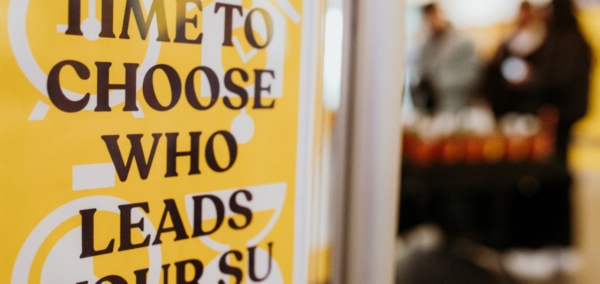
New report by students at Bristol reveals barriers facing men of colour
A new student-led study revels why many men of colour at Bristol avoid mental health services, and what must change.
A group of Bristol students have sounded the alarm on deep-rooted issues facing men of colour when it comes to mental health support, revealing that services outside the NHS are often not just underused, but unfit for purpose. Their findings, published in a new report funded by Research England, show that stigma, poor service visibility, and a lack of cultural relatability leave many men of colour at the University of Bristol struggling alone.
The new project, Promoting Access to Mental Health Care for Men of Colour in the UK, is part of the Future Research Leaders initiative led by Bristol SU. Seven students from diverse academic and cultural backgrounds collaborated with local charity Changes Bristol to investigate the barriers faced by their peers in accessing non-clinical, community-based support.
“There’s no point in talking to someone if they can’t understand you,” said one participant.
“I dropped out of the service because I couldn’t fully communicate with the mental health specialists,” said another.
Through focus groups and thematic analysis, the research team uncovered a striking pattern: Although most students recognised the importance of mental wellbeing, many didn’t feel empowered or safe enough to seek help, especially not from services that felt alien, bureaucratic, or judgmental.
Mental health matters, until it doesn’t
The students found a deep contradiction: While mental health was viewed as important in theory, it was often deprioritised in daily life. Pressure to “just get on with it,” particularly among men and especially within marginalised ethnic groups, meant issues were pushed aside until they reached a breaking point.
“I don’t really pay attention to mental health unless it becomes a serious issue,” one student admitted.
Stigma played a central role. Participants frequently noted that even the phrase “mental health” carried heavy negative associations. Some suggested using alternative terms like “wellbeing” to reduce judgment and make support feel more approachable.
Services that don’t reflect the people they’re for
A recurring issue was the lack of representation, both cultural and linguistic, in existing mental health provisions. Students described feeling misunderstood by providers who lacked awareness of the religious, cultural, or academic pressures they were facing. For many, this made services feel irrelevant at best, and hostile at worst.
“Mental health service providers should have a basic understanding of different cultural backgrounds and religions.”
Participants highlighted how the absence of shared identity or experience made them less likely to open up. Conversely, they expressed strong preference for peer-led groups, relatable facilitators, and culturally tailored support.
Too hard to find, too long to wait
For those who did try to access help, the logistics could be just as off-putting as the content. Long waiting times, unclear referral pathways, and a lack of visibility left students frustrated and disheartened. Several described being passed between services or left in limbo after reaching out.
“Accessing mental health services is difficult. I tried the wellbeing team, but they told me to contact a GP, and it took me two months to get an appointment.”
In many cases, the sheer effort required to get support, especially when already in emotional distress, acted as a deterrent. This is especially true for international students, who may be unfamiliar with the UK health system and wary of formal interventions.
If not therapy, then what?
Because traditional support often felt inaccessible, many students turned to alternative coping mechanisms: Music, sport, spiritual practices, or simply spending time with friends. These approaches were seen as more approachable, more culturally acceptable, and crucially more effective for day to day wellbeing.
“Instead of relying on expensive mental health services, I try to find the next best thing, like sports or watching TV, and stay surrounded by friends and loved ones.”
Rather than dismissing these strategies, the report recommends embracing them, and even integrating them into structured mental health initiatives.
So what now?

The students didn’t stop at diagnosis. Their report lays out three actionable recommendations for improving access to non-NHS mental health support:
- Improve staff capacity and cultural responsiveness
Services should recruit more diverse staff and invest in cultural competency training. Peer-led support groups should be facilitated by people with shared backgrounds or experiences. - Simplify services and protect privacy
Mental health support should be easy to access, with clear pathways and reduced wait times. Anonymous options, like drop-in sessions and online platforms, should be expanded to encourage engagement without fear of judgment. - Targeted, culturally relevant outreach
Awareness campaigns should be co-designed with the communities they aim to reach, using familiar language and trusted student societies as platforms. Events and workshops should take place in spaces where men of colour already feel safe and welcome.
Changing the culture, not just the system
The project doesn’t just call for tweaks, it calls for a transformation in how we understand and deliver mental health support. For men of colour at Bristol and beyond, the report makes clear that inclusive, culturally informed care isn’t a nice-to-have. It’s a necessity. The student researchers will present their findings at the Research England Festival this July, where they hope to spark wider change, both within universities and across local mental health providers.
A University of Bristol spokesperson said:
“We care deeply about all our students and staff which is why the mental health and wellbeing of our community is at the heart of decision making across the University. This includes the provision of appropriate, accessible services and interventions. “The findings of this collaborative report focus on the experiences of men of colour and was led by Bristol Students’ Union and supported by the University. It offers important insights for the University and other providers of non-NHS wellbeing services locally, as we continue to develop and improve services to support those who need help.”
If you would like support or advice regarding mental health, you can contact the Bristol Samaritans on 116 123
Images via The University of Bristol



















